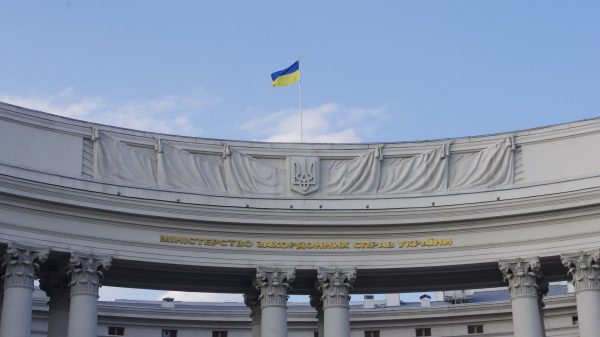
At the start of the war in Ukraine, Russian oligarchs under sanctions were humiliated by the confiscation of their private jets.
>Operation Kleptocapture, a task force led by the US Department of Justice, whose goal was to crush Putin's inner circle, promised to «confiscate the assets» of sanctioned Russians who were accused of enriching themselves at the expense of the state and protecting the Kremlin.
However, many planes managed to escape, either because they were parked in countries that did not impose sanctions, or because they were withdrawn in time to repel the raid.
Then a funny thing happened: uncaptured planes began to fall from the grid. Many private jets belonging to sanctioned oligarchs have disappeared from tracking systems such as FlightRadar.
An analysis of data from Russian aviation authorities for The Telegraph by Tim Symington, who runs an investigative newsletter on Russian oligarchs, suggests that many private jets associated with sanctioned oligarchs have been re-registered with new tail numbers.
< p>Official figures from Russia's Federal Air Transport Agency show a flurry of new private jet registrations last year.
p>
Given that the sanctions have made it almost impossible to acquire new Western-made aircraft in Russia, it can be assumed that many oligarchs have re-registered their private jets in their home countries under new tail numbers. Further analysis shows that many of them are linked to oligarchs under sanctions.
Aircraft must be registered with the national authority and re-registration in different countries is completely legal. The process is somewhat similar to registering a car, says Jonathan Russell, partner at Jaffa & Together with superyacht and aviation lawyers.
However, a consequence of the re-registration is that aircraft owners enjoy a new degree of anonymity when flying around the world.
Most oligarchs own their private jets through complex structures involving offshore companies, making it difficult to establish ownership.
But consistent investigations and media reports, including a Forbes project that identified 26 planes linked to sanctioned Russians, meant that many planes were known to be linked to the oligarchs.
The movement of these planes could be track by tail numbers in open source services such as Flight Radar. Changing these details hid their movement.
Symington used manufacturer names, serial numbers and models of private jets to identify jets previously associated with various sanctioned oligarchs on the website of Russia's Federal Air Transport Agency, revealing their new tail numbers. .
Analysis shows that many continue to fly freely around the world to countries that have not imposed sanctions.
2005 Russian oligarchs
Aircraft allegedly owned by Dmitry Mazepin, owner of fertilizer manufacturer Uralchem ”, flew between Sochi, where Putin is rumored to be, Dubai, Mauritius, the Maldives and Kazakhstan.
Another person linked to Vladimir Potanin, the owner of Norilsk Nickel and one of Putin's confidants, made regular trips between Istanbul. , Moscow and Sochi, sometimes with deadlines within hours.
A Gulfstream 650, linked to German Gref, head of Russia's largest state bank, traveled between Namibia, Zimbabwe, Uzbekistan and Dubai.
Mazepin, Potanin and Gref came under British sanctions. The EU also imposed sanctions against Gref and Mazepin. The US has imposed sanctions on Potanin and Gref.
Other destinations where planes linked to the sanctioned oligarchs have flown include Delhi, Phuket, Tehran, Cairo and Azerbaijan, as well as Beijing and Zhengzhou in China.< /p>
Generally speaking, private jet flight paths tell two stories. First, the oligarchs seem to often relax on the beach.
However, flights to Iran, China and India are likely to be more business than pleasure, says Sandeep Baliga, professor of managerial economics and economics. Decision Science at Northwestern University's Kellogg School of Management.
China and India have become important trading partners for Russia since the outbreak of the war in Ukraine and are now Russia's largest oil markets.
At the start of the invasion, there was widespread hope that sanctions against the oligarchs could provoke an uprising in Putin's inner circle and change the course of the war.
 Fertilizer baron Dmitry Mazepin was among the sanctioned oligarchs, still flying around the world. Photo: Maksim Konstantinov/SOPA Images/LightRocket via Getty Images
Fertilizer baron Dmitry Mazepin was among the sanctioned oligarchs, still flying around the world. Photo: Maksim Konstantinov/SOPA Images/LightRocket via Getty Images
Baliga, who has studied sanctions, says: “The idea behind targeted sanctions is that you target the elite directly and hurt them so that they directly change policies in order to be taken back to the international community.”
However, Symington's analysis suggests that this is now a distant hope. The sanctioned oligarchs are still roaming the world freely.
The best way the West did not work, and the opportunity to stop the war by imposing sanctions on the oligarchs has already been lost, says Baliga.
“ Now it's too late for them. What could have happened at the beginning of the war did not happen. Now the war continues, and the elite that has power fear for their lives if they capitulate to the West.”
Sanctions are only effective if they use a «carrot and stick» approach. The war has been going on too long for the end of it to be a real reward for the oligarchs, says Baliga.
“They are never going to capitulate,” says Baliga. “The role of sanctions is really different now. It's not about the incentive to stop, it's about starving the Russian war machine.
«Can they get chips for their tanks, can they get parts for their fighter jets, fuel for their missiles?»< /p>
Sanctions will slowly take their toll on Russian private jet owners, even if they can still travel.
The US Office of Foreign Assets Control has introduced export control rules that mean aircraft and related supplies cannot be sent to Russia.
“In effect, this means that no business jet manufacturer can no longer provide technical support for an aircraft that is considered to be Russian,” says Oliver Tebbitt, partner at Watson Farley & Attorneys for Williams.
«Any aircraft in the world is made up of over 25% U.S. components, effectively making it subject to U.S. export control regulations.»
 Putin's confidant Vladimir Potanin regularly flies between Istanbul, Moscow and Sochi. Photo: REUTERS/Sergey Karpukhin
Putin's confidant Vladimir Potanin regularly flies between Istanbul, Moscow and Sochi. Photo: REUTERS/Sergey Karpukhin
As time goes by, planes deteriorate and become difficult to repair. As a result, even non-sanctioned private jet owners in Russia cannot properly maintain their aircraft.
“They can take old planes apart for parts, but over time, obviously, it becomes more and more difficult,” says Tebbitt.
If Russian aircraft are not properly maintained, other aviation authorities around the world could impose security restrictions.
“Over time, the question of whether they can fly from, say, Moscow to Dubai may become more difficult,” says Tebbitt.
Even wealthy Russians who have not been subject to personal sanctions but own private jets feel the heat. Many are starting to sell out, Tebbitt says.
The market can be thin though. Selling private jets usually includes a pre-screening process, similar to a survey before selling a home. They indicate any necessary repairs that are traditionally financed by the seller.
“In such situations, the seller cannot perform any of these works, as this would require support from the original equipment manufacturers, who are prohibited from providing it . So the buyer has to come and see the cost of the repair,” says Tebbitt. On a larger plane, they can cost around $2-3 million.
Although the oligarchs under sanctions can still fly freely around the world, international restrictions will play the role of sand in the car and gradually make life more difficult . .


























































Свежие комментарии